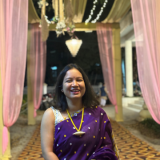Dixita Deka - Living without Closure: Memories in the Aftermath of Insurgency
In India’s Northeast region, insurgency led by the United Liberation Front of Asom (ULFA) in Assam continues since 1979. While one of its factions under ceasefire since 2008, ULFA, signed the Memorandum of Settlement with the Central Government and the State Government of Assam on 29 December 2023, the other faction, ULFA (Independent), continues to be underground. Throughout the 1980s, ULFA enjoyed a strong popular base in rural Assam and was involved in community developmental work. It ran a parallel government, and was successful in mobilizing and recruiting young people to fight for a ‘sovereign Assam’. In 1990, President’s Rule was imposed in Assam, the state was declared a ‘disturbed area’ under the Armed Forces (Special) Powers Act, and ULFA was banned. It was during this time that Assam saw brutal counter-insurgency operations where social lives were militarized. Witnessing state violence and extrajudicial killings also compelled many young men and women to join the organization. While the introduction of monetary packages by the state was perceived to be a ‘successful’ rehabilitation tactic in pulling many insurgents back into the mainstream society and creating internal schisms within ULFA, some of them were mobilized as a ‘death squad’. One of their main objectives was to kill the family members, close aides, and sympathizers of ULFA on their inability to convince their underground kins to surrender. The Justice K.N.Saikia Commission was formed in 2005 to investigate these killings which had implicated the surrendered cadres and the police backed by the then state government, where the army was kept in the loop. While the Commission compensated 35 cases covering the lives of around 50 people, it was estimated that there were over 300 people killed by these death squads using the same tactics and within the period of 1996-2001.
In this talk, I shall firstly share about these killings, their targets and tactics, what makes this type of killing different from other forms of state violence, how it dehumanizes civilians, and how it resonates in other parts of Northeast India and beyond. Until the 2014 Lok Sabha elections, these killings remained a crucial issue in electoral campaigns in Assam. However, no one is convicted till date and the state made no attempts for reconciliation. The silence around these killings in Assam is symbolic of suspicion, fear, grief, guilt, shame, and a scarred history. Secondly, I will focus on the stories of the survivors and the families of victims. How do they remember? What happens when the body is not recovered? How do they mourn their family members under state surveillance? Thirdly, I discuss the challenges of researching about these killings ethically, and also share how engaged scholarship and collaboration between researchers and the community could begin a conversation towards healing.
Speakers
Dixita Deka is a Postdoctoral Associate in the Program in Agrarian Studies at MacMillan Center, Yale University. She completed her PhD from the Tata Institute of Social Sciences, Guwahati Campus. She is an interdisciplinary researcher from Assam in Northeast India. Her research interests include insurgency in Northeast India, gender studies, and food cultures in the Eastern Himalayas. Currently, she is preparing her book manuscript, Underground Women, on the lives of women insurgents from Assam and also following the farming journeys of the former insurgents. She is an Honorary Research Fellow at the North Eastern Social Research Centre (NESRC), Guwahati.
- Societal Resilience
